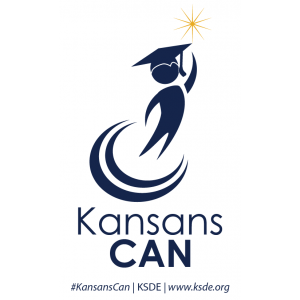JBE: Truancy
Unless reporting would violate the terms of any memorandum of understanding between the district and the authority to which reports would be made, the building principal shall report students who are inexcusably absent from school to the appropriate authority.
Truancy is defined as any three consecutive unexcused absences, any five unexcused absences in a semester or seven unexcused absences in a school year, whichever comes first. Truancy shall not apply to students who have attained a high school diploma, a general educational development credential, or a high school equivalency credential. Exceptions also exist for students attending the Kansas academy of mathematics and science and for students who are part of a recognized church or religious denomination objecting to a regular public high school education under circumstances specified in state law.
For truancy purposes, being enrolled and continuously attending a public school; a private, denominational, or parochial school taught by a competent instructor for a period of time which is substantially equivalent to the period of time public school is maintained in the school district in which the private, denominational, or parochial school is located; or a combination of attendance in both a public school and a private, denominational, or parochial school may satisfy compulsory attendance requirements. School year means the period from July 1 to June 30. Students who are absent without a valid excuse for a significant part of any school day shall be given an unexcused absence for truancy accounting purposes considered truant.
Prior to reporting to either DCF (if the student is under 13) or the county or district attorney (if the student is over 13 or more years of age but less than 18 years of age), a letter shall be sent to the student's parent(s) or guardian notifying them that the student's failure to attend school without a valid excuse shall result in the student being reported truant.
Waiver of Compulsory Attendance Requirements
Students 16 or 17 years of age may be exempted from compulsory attendance regulations if:
- The student is regularly enrolled in and attending a program recognized by the board as an approved alternative educational program;
- the parent(s) or person acting as a parent provides written consent to allow the student to be exempt from the compulsory attendance requirement and the student and the student's parent or person acting as parent attend the counseling session required by law and signs the appropriate consent and waiver form;
- the student is not subject to truancy law in accordance with law or this policy
- the child is regularly enrolled and continuously attending school as required by law and is concurrently enrolled in a postsecondary educational institution; or
- if the student is exempted from compulsory attendance requirements pursuant to a court order.
Involvement of Law Enforcement
Law enforcement officers may return truant children to the school where the child is enrolled, to the child's parent or guardian or to another location designated by the board to address truancy issues.
Reporting to Parents
If a truant child is returned to school by a law enforcement official, the principal shall notify the parent or guardian.
Dual Enrollment Students
Eligible students who are enrolled in a board-approved dual enrollment program shall not be considered truant for the hours of the school day they attend classes at a Regents university, community college, technical college, vocational education school or Washburn University.
Approved: May 15, 2023







